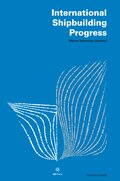Searching for just a few words should be enough to get started. If you need to make more complex queries, use the tips below to guide you.
- Boolean operators
- This OR that
This AND that
This NOT that - Must include "This" and "That"
- This That
- Must not include "That"
- This -That
- "This" is optional
- This +That
- Exact phrase "This That"
- "This That"
- Grouping
- (this AND that) OR (that AND other)





